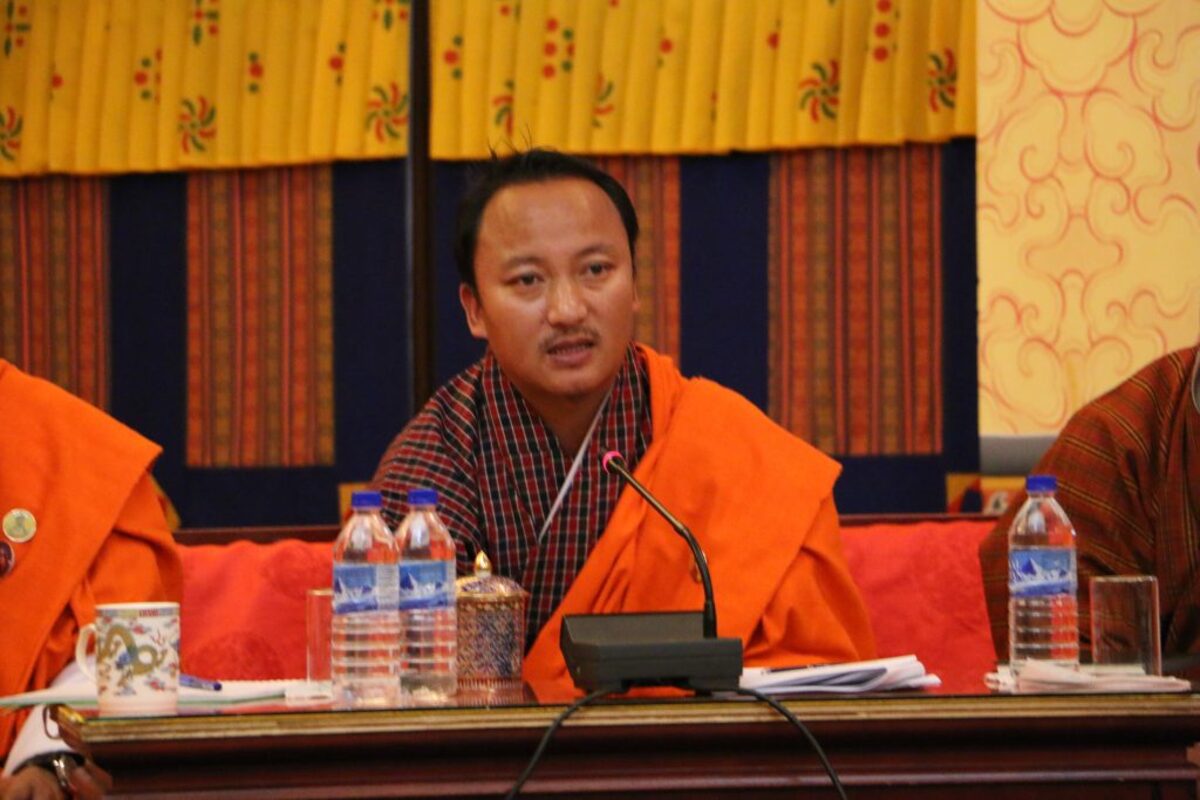Sri Lanka to host India and South Africa in women’s tri-nation series
Sri Lanka will host a ti-nation women’s ODI series, involving India and South Africa during the months of April and May.
“If we continue to experience the widening trade deficit, then it is certain that we will experience current account deficit and run out of our foreign currency reserve,”

Bhutan's Finance Minister Namgay Tshering
After the economic crisis of Sri Lanka, Pakistan’s name has been doing the rounds in the list f troubled economies. However, the latest entry in the list of economies facing acute crisis, is that of Bhutan. The import of non-essential goods could be discouraged and even restricted to control the widening trade deficit and protect the depleting foreign currency reserve.
Finance Minister Namgay Tshering has said the value of imports during the first six months of 2022 had exceeded that of the total imports of 2021. “Imports increased due to the normalisation of covid-19 protocols,” he said.
Advertisement
The value of imports amounted to Nu 90.22 billion (B) in 2021 from Nu 66.63B in the previous year. Accordingly, the trade deficit increased to more than Nu 32B from more than Nu 18B during the corresponding period.
Advertisement
The country, he said, “really” needed to address the issue of trade deficit to fix the basic macro-economic parameters.
“If we continue to experience the widening trade deficit, then it is certain that we will experience current account deficit and run out of our foreign currency reserve,” the finance minister said.
The same happened with Sri Lanka and landed it in a crisis.
The foreign currency reserve (USD and INR combined) had dropped to USD 970.4M in December 2021 from USD 1.2746B July 2021.
Although the latest figures were not available, the finance minister said that the country had foreign reserves enough to meet the import of essentials for 14 months. The Constitution requires the country to maintain foreign currency reserves enough to meet 12 months’ imports.
However, Lyonpo Namgay Tshering added that the government was not in favour of banning imports but that it would solicit the cooperation of citizens and organisations to help protect foreign reserves.
Asked if he saw threats of an economic crisis, the finance minister said, “I can’t say there is no threat of an economic crisis. I cannot say we are not in a crisis. At the same time, I cannot say we are comfortable.”
He said that the country needed to be prepared for the “worst-case scenario” given the possibility of a recession in the world economy. The economy, the finance minister added, was going through an unprecedented situation and headed towards an “uncharted destination”.
The finance minister said that although it was not possible to balance the imports with exports immediately, the government would promote the use of local products to reduce imports as much as possible. He added that it will also put in place a mechanism to control the prices of local products.
The economic crisis like that of Sri Lanka, he said, was a “great lesson” for Bhutan and that the economy should be made resilient against threats of a crisis. The entire reforms that the country was undertaking, he said, was aimed at making the economy resilient.
Asked if the new tourism levy Act, which introduces USD 200 per night for international tourists and INR 1,200 per night for regional tourists, could affect the country’s ability to foreign currency reserve, Lyonpo Namgay Tshering said that foreign currency earnings from tourism were expected to increase.
He said that the argument that the income from tourism would decrease was hypothetical.
The finance minister said that the government would not stress much about the growth of the economy but take some time to fix the basic macroeconomic parameters like high trade deficit.
The appreciation of USD against ngultrum has been a major concern for the economy, as it fuels inflation and increases the cost of debt servicing. The finance minister also said that the sustenance of the current economic situation would lead to macroeconomic instability, which means the economy could face high inflation and frequent financial issues among other problems.
The Indian rupee, with which ngultrum is pegged, depreciated to more than 80 against the US dollar last week. The rupee, however, edged higher to 79.53 against the US dollar on Friday.
Close followers of the economic situation said that the purchasing power was expected to decrease due to the increase in prices. The rate of returns is also expected to decline, as people would pay more for the same amount of goods.
The cost of goods increased with the disruption of the global supply chain. The Russia-Ukraine crisis worsened inflation.
According to an observer, the government’s “transformation initiatives” through which it plans to implement programmes worth more than Nu 45B in the next 10 years are expected to increase the fiscal deficit and public debt.
Advertisement